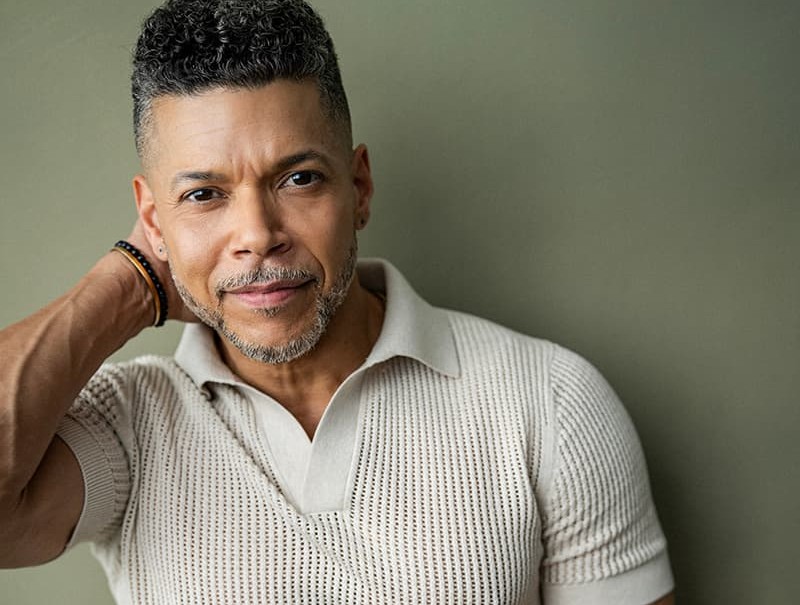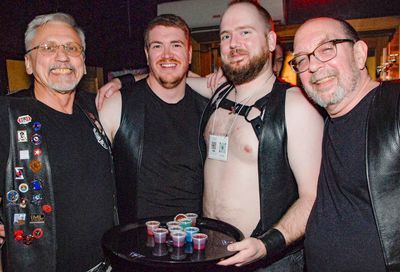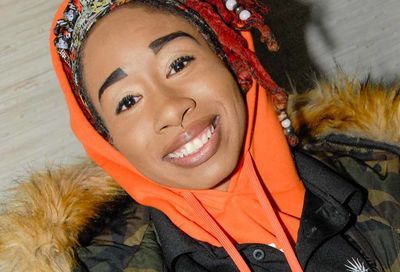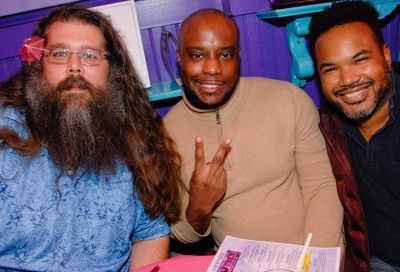HRC: LGBTQ people of color experiencing greater economic impact from COVID-19
LGBTQ people of color are more likely to have reduced work hours, ask for delays for bills and rent, and be unemployed during the pandemic

New data from the Human Rights Campaign shows that LGBTQ people of color are experiencing a greater economic impact from the COVID-19 pandemic than either their white LGBTQ counterparts or the general population.
HRC, the nation’s largest LGBTQ rights organization, has been tracking the impact of the pandemic on the LGBTQ community along with research and analytics consultancy PSB Research.
Building on previous research into the virus’ economic impact, the new data shows that LGBTQ people of color are more likely to have had work hours reduced, to have asked for delays in paying rent or bills, or to have become unemployed due to the pandemic, among other factors.
It also shows that LGBTQ people overall have been disproportionately affected by the virus’ economic impact compared with the general population, including with regards cuts to household spending and feeling worse off now than a year ago.
HRC President Alphonso David said that LGBTQ people of color facing the “severe economic consequences” of the pandemic is “unfortunately not surprising.”
“We know that multiply marginalized populations are at an increased risk of contracting the virus and suffering its effects — vulnerable communities are facing higher death rates than the general population across the country,” David said in a statement. “We must acknowledge that these communities, particularly LGBTQ people of color, face systemic biases that are placing them at greater risk. Understanding this data is the first step towards addressing these injustices as we build towards recovery.”
Among the data collected by HRC, more than a third (38%) of LGBTQ people of color have had their work hours reduced during the pandemic, compared with 29% of white LGBTQ people and less than a quarter (24%) of the general population.
Almost one-fifth (19%) of LGBTQ people of color have asked for delays in paying their bills, compared with 14% of their white LGBTQ peers and 12% of the general population, and 14% of LGBTQ people of color have asked for rent payment delays, compared with less than one-in-ten white LGBTQ people (8%) and the general population (7%).
More than one-in-five LGBTQ people of color (22%) have lost their jobs during the pandemic, a figure that drops to 14% for white LGBTQ people and 13% for the general population.
However, white LGBTQ people are more likely (17%) to have taken unpaid leave, compared with LGBTQ people of color (10%) and the general population (7%).
White LGBTQ people are also more likely to feel that they are worse off financially than they were a year ago compared with LGBTQ people of color. But more LGBTQ people of color are reducing their spending and changing their household budgets than their white LGBTQ counterparts.
However, more LGBTQ people overall feel worse off financially now than they did a year ago compared with the general population, HRC’s data shows.
HRC points to a number of factors that are contributing to LGBTQ people of color being particularly impacted by COVID-19, including black people accounting for 22% of COVID-19 deaths in the U.S. despite only comprising 12% of the population.
Black people and LGBTQ people are also more likely to be employed in industries that have been heavily impacted by the pandemic, including food service or restaurants, or to be working as janitors, cashiers, and stockers.
In its report, HRC notes that “poor data collection, however, has limited our understanding of the impact of this epidemic on Black LGBTQ Americans.”
“The failure of federal officials to consistently collect and report data on sexual orientation and gender identity makes it impossible to know the health and economic toll on the LGBTQ community and LGBTQ people of color,” the report states.
HRC has previously warned of the coronavirus’ impact on black and LGBTQ communities, and last month called on Congress to tailor future stimulus bills to address health disparities.
“As in all emergencies, the most vulnerable are the most at risk during the COVID-19 crisis,” David said in a statement at the time. “Data is emerging showing Black communities are contracting and dying from the virus at particularly high rates and our own research shows the economic and health impacts this pandemic may have on LGBTQ people.
“We cannot ignore the role that bias plays in health disparities, and for that reason HRC has long called for inclusive data collection to ensure that all people are counted,” he added. “Today, we call on every state to collect more data so that we can truly measure the impact on those most at risk and respond with prevention and treatment strategies that work.”

HRC recently joined a number of other LGBTQ organizations and health advocacy groups in an open letter urging those in charge of tackling COVID-19 to remain aware that the LGBTQ community is “particularly vulnerable” to the effects of the virus.
The letter noted key reasons for the virus’ potential impact on LGBTQ people, including higher rates of smoking among LGBTQ people, as the coronavirus is a respiratory illness. It also pointed to higher rates of HIV and cancer in the LGBTQ community, as well as ongoing health care discrimination and denial of care, which can impact access to care or increase the reluctance of an LGBTQ person to access treatment.
David also slammed the Trump administration last month for pursuing its plans to remove health care discrimination protections for transgender people in the midst of the pandemic.
A rewrite of the Affordable Care Act would explicitly state that its prohibitions on sex-based discrimination do not apply to transgender people, reversing an interpretation adopted by the Obama administration.
“Amid a global pandemic — which is already disproportionately affecting LGBTQ people — the Trump administration’s efforts to remove existing non-discrimination protections for the LGBTQ community is unacceptable, blatantly offensive, and cruel,” David said in a statement. “We cannot accept an administration that continues to treat us like second class citizens. We will fight this policy and fight to get a pro-equality President into office this November who represents all of us.”
Read more:
Iraqi politicians call for expulsion of diplomats after foreign embassies fly Pride flag
Capital Pride organizers announce “reimagined” events in response to COVID-19 pandemic
Support Metro Weekly’s Journalism
These are challenging times for news organizations. And yet it’s crucial we stay active and provide vital resources and information to both our local readers and the world. So won’t you please take a moment and consider supporting Metro Weekly with a membership? For as little as $5 a month, you can help ensure Metro Weekly magazine and MetroWeekly.com remain free, viable resources as we provide the best, most diverse, culturally-resonant LGBTQ coverage in both the D.C. region and around the world. Memberships come with exclusive perks and discounts, your own personal digital delivery of each week’s magazine (and an archive), access to our Member's Lounge when it launches this fall, and exclusive members-only items like Metro Weekly Membership Mugs and Tote Bags! Check out all our membership levels here and please join us today!


























